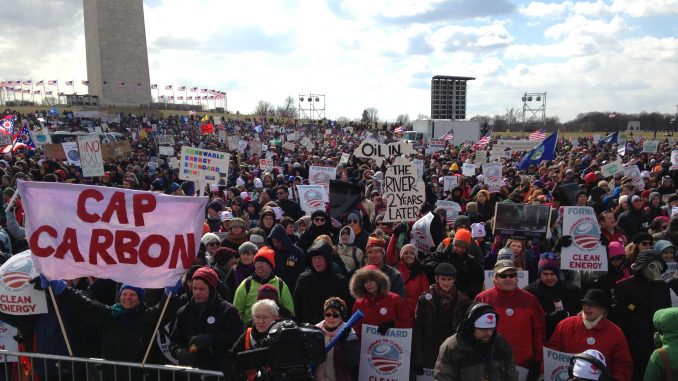
On Oct. 5, 2016, 55 countries representing at least 55 percent of carbon emissions worldwide signed off on the Paris Agreement and it was later ratified and put into action on Nov. 4th. Since then, the number has increased to 96 countries, including the U.S., all of whom are on board with the accord.
The agreement, introduced back in April 2016, is set in order to reduce the possibility of carbon emissions reaching 3.6 degrees Fahrenheit over pre-industrial levels.
As established by the UN Environmental Programme, it is believed that by the year 2030, carbon dioxide emissions will reach 56 gigatonnes annually — a number way above what is needed to uphold the 3.6 degree limit.
The emission of greenhouse gases such as carbon dioxide and methane results in the rise in average world temperature — ultimately, the larger amount of greenhouse gases emitted into the air, the larger the potential of there being severe climate change.
Fourth-year political science major and environmental studies minor Michael Tierney greets the idea of the agreement with dismay.
“In my opinion, the agreement does not do nearly enough. It has no teeth or negative consequences if the treaty is not followed,” Tierney commented.
Tierney, who is a senator for the Student Association (SA), sits on both the Environmental Task Force and sustainability committee, attends weekly meetings for New Paltz Climate Action Coalition (CAC), as well as being one of the New Paltz board reps for NYPIRG, who push for environmental reforms on the state level, doesn’t see the agreement as a way to open the public’s eye to climate change but just a reminder that as a population, the need to act is ever present.
“I don’t believe the Paris agreement will open people’s eyes all that much, because I think most people are already aware of climate change. It’s now about changing people’s lifestyles to fight climate change,” Tierney reasoned.
Tierney also explained that while the European Union is on track for the goals they set aside to reach by the year 2020, the problem lies with the large GHG emitters: the United States, India and China.
Tierney’s opinion is not the minority. Professor in the Department of Sociology and Director of the Environmental Studies Program Brian Obach fears that the Paris agreement can only make a difference if everyone does their part.
Obach pointed out that, “I think the agreement will help if people fulfill their obligations but I don’t think it will be enough to stave off severe ecological damage. “
Third-year psychology and environmental studies major Shannon Rafferty said she feels similar views as Obach on the matter. Rafferty, like Tierney, frequents CAC, as well as sitting on the E-Board for Sustainable Agriculture club here on campus. Her fears lie in the fact that not following the agreement results in no legal action.
“There are no real binding agreements as of right now,” Rafferty said. “I’m concerned that our president elect will easily be able to withdraw from the agreement. Not only is that terrifying for the future of our planet but I think it could also strain relations with other countries to show a lack of commitment.”
According to Tierney, “it is up to individuals to change their lifestyles and turn away from mass consumption if we are to really take on climate change.”
